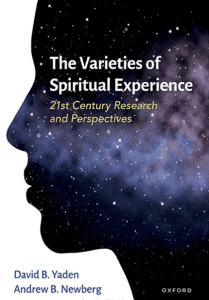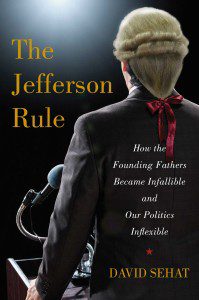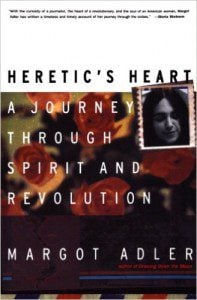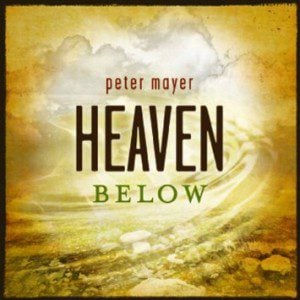Each year the congregation I serve as minister holds an auction. As is customary, I put up for bid, an opportunity to hear me preach on whatever topic the highest bidder is passionate about, or thinks would be particularly important or meaningful for the congregation to hear. This year I was challenged
to speak to a very human and common condition…which is the gap between our beliefs and our behaviors. In particular…speak to those beliefs…which, in your estimation, best define the UU movement, now and in the future, and the behaviors that all of us should attempt to manifest to live them out. We ask that you speak…to specific, certain and ongoing behaviors that help us make Unitarian Universalism a more integral part of our lives.
One uncharitable word for this gap between espoused beliefs and embodied behaviors is hypocrisy. But, of course, there’s an easy way to avoid being a hypocrite: have low standards! Then, you’ll always succeed in surpassing the low bar you have set for yourself.
But even a cursory glance at our UU Seven Principles shows that we have set high goals for ourselves:
“The inherent worth and dignity of every person”
“Justice, equity and compassion in human relations”
“The goal of world community with peace, liberty, and justice for all”
Instead of an easily-reached, low-bar of expectations, we’re more likely to find ourselves exhausted or guilty of self-flagellation for our inability to live up to all that we hope to achieve. So what do we do in light of our high goals when instead of saving the world, we end up falling asleep on the sofa in front of the TV?
Or from a related perspective, a few weeks ago I told you the story of when I was a teenager and a minister on staff at the congregation I attended explained to me that the reason he didn’t give a homeless man any money is that, “If we started giving money to everyone who asked, then the church’s budget would be gone in a day.” Even as a young teenager, I sensed that he was being duplicitous. And I was increasingly unable to reconcile such self-defensive, fear-based positions with Jesus’ much more open, vulnerable, and radical teachings in the Sermon on the Mount:
“40 If anyone wants to sue you and take your coat, give your cloak as well; 41 and if anyone forces you to go one mile, go also the second mile. 42 Give to everyone who begs from you, and do not refuse anyone who wants to borrow from you.”
I was taught to study the Bible daily and to do what Jesus did, but I became disillusioned with the gap between alleged beliefs and actual behaviors. As a recent article on Slate said about surveys exposing the discrepancy that Americans self-report that they are much more religious than their actual behavior indicates. In the words of the article, our society tends to “talk Jesus but walk Santa.”
And historically, a major part of the shift from Orthodox Christianity to the Liberal Christianity (that eventually led us toward the robust pluralism of contemporary Unitarian Unitarianism) was the move from Orthodox Christianity’s emphasis on “right belief” to Liberal Christianity’s emphasis on “right action” or ethics. Our Unitarian Universalist tradition teaches that it’s more important what you do — whether you live a life of kindness and compassion, peace and justice — than what you say you believe. As the motto goes, “We believe in deeds not creeds.” Or as John Adams, the second President of the United States and a Unitarian said, “I do not attach much importance to creeds because I believe [one] cannot be wrong whose life is right” (Harris 9).
Along these lines, one of my favorite stories that Jesus told is the less well known “Parable of the Two Sons”:
28 A man had two sons; he went to the first and said, “Son, go and work in the vineyard today.” 29 He answered, “I will not”; but later he changed his mind and went. 30 The father went to the second and said the same; and he answered, “I go, sir”; but he did not go…. Jesus said to them, “Truly I tell you, the tax collectors and the prostitutes are going into the kingdom of God ahead of you.”
As I began to question traditional Christian creeds, I found much comfort in this parable: that it was less important whether I could say the Nicene Creed without crossing my fingers and more important if I was seeking to live in the generous, open-hearted way that Jesus and other wisdom teachers through the ages have demonstrated.
Jesus told that parable to scandalize the religious leaders of the day, who thought it was sufficient to have all the right beliefs. But when Jesus ends that parable with the jab “Truly I tell you, the tax collectors and the prostitutes are going into the kingdom of God ahead of you,” he means that often those on the margins of society are much kinder and compassionate than society’s leaders. That is one of the reasons there has been so much excitement about Pope Francis: people are seeing an all-too-rare alignment between behaviors and beliefs in a world religious leader — someone who cares less about pomp and circumstance and more about caring for the poor.
Accordingly, Unitarian Universalism has evolved into a “non-creedal” tradition, which means that there is no belief statement that you have to sign to become a member of a UU congregation. Instead, we are a covenantal tradition — that is, what’s most important is the way we agree to live together as a Beloved Community amidst all our diversity. In the words of a former UUA President,
the memory we seek to embody is of forebears wise enough to put aside the creedal question…”What do we all believe in common?” for more profound, covenantal questions: “How shall we treat and help one another here? What hopes might we share? What promises shall we make to help deepen one another’s lives in the time we have?”
Another way of expressing this difference is that some sociologists of religion have noted an important shift from a paradigm of Believe-Behave-Belong in which newcomers to a religious community first had to believe the right doctrines, then behave correctly, and finally were allowed to belong. The postmodern paradigm reverses the order to Belong-Behave-Believe. Today, most newcomers first want to feel like they belong (that they are in an open, safe, accepting community), then they are open to reflecting on ethics (how they behave) — and over time they may find that their beliefs are shifting through being in community. As the saying goes, “It is easier to act your way into a new way of thinking than think your way into a new way of acting.”
That being said, allow me to turn now from this “very human and common condition” of finding a “gap between our beliefs and our behaviors” to ways that we might better begin to align our UU beliefs into a “more integral part of our lives.” First, if we are going to have any hope of advancing our lofty goals — “The inherent worth and dignity of every person,” “Justice, equity and compassion in human relations”, and “The goal of world community with peace, liberty, and justice for all” — then we must reorient ourselves from independence to interdependence. Our forbears were right to rebel against corrupt authorities, oppressive communities, and antiquated traditions, but that vital and hard fought individualism can only carry us so far. And our society’s current extreme individualism is eviscerating a concern for the common good. We need to seek not only what profits individual selves, individual bank accounts, and individual spiritualities. We need to ask, “What is best for both myself and the other.” And we need to expand the so-called “bottom line” of profit to include what is called the “Triple Bottom Line” of “People, Planet, and Profit.”
Along these lines, perhaps the most well-known and revered Unitarian historically is Ralph Waldo Emerson (1803-1882). But we sometimes forget that Emerson walked away from his Unitarian pulpit for the lecture circuit. Emerson did not commit to the hard, but rewarding work, of building a Beloved Community in a congregation.
In contrast, the late UU historian Conrad Wright reminds us in his book Walking Together: Polity and Participation in Unitarian Universalist Churches that Emerson’s nineteenth-century contemporary Henry Bellows (1814-1882) is much more the reason why contemporary Unitarian Universalism exists than Emerson (43, 69, 126). Bellows was the prime mover behind organizing autonomous Unitarian congregations into a networked association. And whereas Emerson only lasted three years as minister of the renown Second Church in Boston, Bellows was minister for 43 years of one congregation: All Souls Unitarian in New York City. Bellows also reached out to the wider community. In particular, during the Civil War, Bellows convinced President Lincoln to form the U.S. Sanitary Commission (of which Bellows became the first president) to clean up campsites; provide food, clothing, and medical supplies; and improve hospital conditions — as well as later to help Civil War veterans with “jobs, pensions, and medical care” (Harris 51-52). To make a similar impact here in the twenty-first century, we need to balance our Emersonian individualism with a “Bellowsian interdependence” of turning toward one another for “mutual trust and support” — because there is so much more we can accomplish together than alone.
Looking to the larger UU movement, my college The Rev. Sarah Moldenhauer-Salazar points toward a fascinating recent survey of 700 self-identified Unitarian Universalists, who are not affiliated with any local congregation — a group sometimes lovingly called “Free Range UUs.” These findings are significant because the number of individuals “who identify as UU but are not members of congregations … [is] four times bigger than our actual membership” (5).
And in response to the question, “When do you feel most UU?” these Free-range UUs, said that they tend to feel most UU,
“When they are with other UUs,”
“When they are with people of different religious beliefs,” and
“When they are living out their values or engaged in spiritual practice.”
We need each other. We are stronger together. And we change ourselves and this world when we live out our values together. That’s why I encourage you to invite friends, family, and colleagues to come with you here to UUCF if they might find our religious community to be of value and support — both because the number of individuals “who identify as UU but are not members of congregations … [is] four times bigger than our actual membership and because it matters whether we show up here on Sunday morning and to various events and groups during the week. Sometimes we show up for ourselves. Sometimes we show up because something we say or do — or even just our presence — provides Beloved Community for another.
And beyond Sunday morning, as we seek to integrate UU Principles into daily life, I know of individuals and families who each evening — often at the dinner table — light a chalice and take time to reflect on the day using one of the Seven Principles. You can rotate the order randomly, or on Mondays, the first day of the week, reflect using the lens of the First Principle: In what ways did I succeed or fail to recognize the “inherent worth and dignity of every person?” Then use the Second Principle for Tuesday, the second day of the week: In what ways did I succeed or fail today to practice “justice, equity and compassion in human relations.”
The goal over time is to notice the times when it is easiest for you to put your UU values into practice and to be more intentional about doing more of that — as well as to notice the situations when it is most difficult to live out your UU values so that you can reflect on what you may be able to change incrementally for the future.
To adapt an old evangelist line about behaviors and beliefs, “If you were accused in court of being a Unitarian Universalist, would there be enough evidence to convicted you?!” Now, that line as potentially more guilt-inducing than is perhaps helpful. But the point is that our UU tradition challenges us that it not what we say we believe and value that matters; it’s what we actually do. Deeds not creeds. Behavior is believable.
The Rev. Dr. Carl Gregg is a trained spiritual director, a D.Min. graduate of San Francisco Theological Seminary, and the minister of the Unitarian Universalist Congregation of Frederick, Maryland. Follow him on Facebook (facebook.com/carlgregg) and Twitter (@carlgregg).
Learn more about Unitarian Universalism:
http://www.uua.org/beliefs/principles












